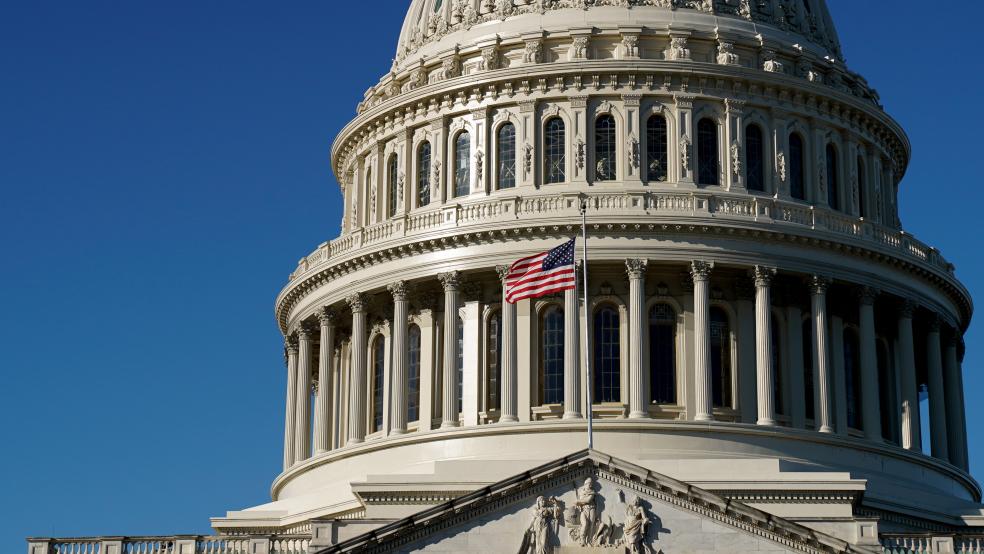The House of Representatives is poised to vote tonight on a $78 billion bipartisan deal that would temporarily enhance the Child Tax Credit and restore a trio of corporate tax breaks. The measure is expected to pass with broad bipartisan backing, though the vote only comes after House Speaker Mike Johnson was able to reach a side deal to allay the concerns of blue state Republicans upset that the cap on state and local tax deductions was not raised in the legislation.
“The Tax Relief for American Families and Workers Act is important bipartisan legislation to revive conservative pro-growth tax reform,” Johnson said in a statement Wednesday. “This bottom-up process is a good example of how Congress is supposed to make law.”
The Child Tax Credit, now capped at $2,000, would be indexed to inflation for 2024 and 2025. The refundable portion of the credit would be raised from the current $1,600 to $1,800 for 2023, $1,900 for 2024 and $2,000 in 2025. Families would also be allowed to use their previous year’s earnings to set their eligibility for the credit. The deal also restores several business tax benefits that have ended or are set to expire. The plan is paid for, at least in the near term, by reining in the employee retention tax credit, which has been subject to widespread fraud.
The bill isn’t law yet, though. To get to Wednesday’s vote, Johnson had to maneuver around objections from both moderates and conservatives in his party. To assuage the moderates, he reportedly committed to bringing up separate legislation to boost or remove the $10,000 cap on state and local tax deductions imposed in 2017 to help pay for the Republican tax cuts. And to bypass conservatives who might otherwise block the bill over the child tax credit expansion, he’s bringing it up for a floor vote under a suspension of the House rules, meaning that it will require a two-thirds majority for passage — and that a large number of Democratic votes will be needed.
Even if the bill clears the House tonight as expected, it could still face challenges in the Senate, where some members have raised concerns about specific provisions — or about the general idea of passing anything that could benefit President Joe Biden’s reelection chances.
“I think passing a tax bill that makes the president look good mailing out checks before the election, means he could be reelected and then we won’t extend the 2017 tax cuts,” Republican Sen. Chuck Grassley of Iowa told Semafor, even though House Republicans insist that Biden is specifically prohibited from timing the refund checks to maximize his political benefit.
Why it matters: Backers of the bill say it will help 16 million kids from low-income families while also strengthening businesses, promoting innovation and improving U.S. competitiveness with China. Politically, the deal includes victories for both parties and represents a rare bipartisan accomplishment for a Republican-led House that has struggled to legislate.
While business groups support the legislation, some conservatives have decried the changes to the Child Tax Credit as an expansion of the welfare state that would disincentivize work, and some have claimed that undocumented immigrants would be able to get the credit — a claim that Republican House Ways and Means Chairman Jason Smith has said is “completely false.”
Some progressives, meanwhile, have said that the Child Tax Credit should be expanded further and that the balance of benefits in the legislation is tilted too far toward businesses. “The tax deal fails on equity,” Rep. Rosa DeLauro of Connecticut, the top Democrat on the Appropriations Committee, said in a statement this week. “At a time when a majority of American voters believe tax on big corporations should be increased, there is no reason we should be providing corporations a tax cut while only giving families pennies.”
The bottom line: The House is set to do something that looked highly unlikely just weeks ago, and an overwhelming vote could pressure the Senate to follow suit.
Taxes
House Set to Vote on Bipartisan Tax Bill to Expand Child Credit, Restore Business Breaks

Reuters/Erin Scott




